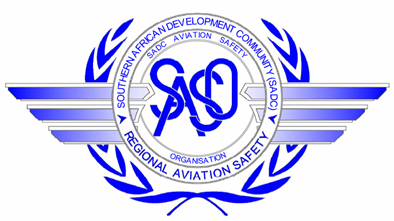SASO defines its functions in the following 6 broad categories of customer service:
Due to technological advancements, the evolving international standards and recommended practices and organisational needs, Members of SASO (MOS) States may request advisory services and assistance from SASO. "Advisory Services" within this context means technical advisory services provided by SASO on request by any of the MOS states.
Certification is one of the broad categories of customer service provided by the SASO in support of the Civil Aviation Authorities (CAAs) of the SADC Region. Certification exercises are comprised of flight operations and/or airworthiness activities managed by the CAA in response to applications for certification. Some examples of the types of certificates sought are: Air Operator Certificates (AOCs), Approved Maintenance Organisation (AMO) Certificates, Approved Training Organisation (ATO) Certificates, Aircraft Registration or Airworthiness and special authorisations.
Surveillance is also one of the 6 broad categories of customer service provided by the SASO in support of the CAAs of the SADC Region. Surveillance is an activity undertaken by Government Safety Inspectors (GSIs) after the CAA has issued a certificate. The purpose of surveillance is to ensure that certificate holders continue to maintain original certification standards as measured against relevant national regulations and current CAA policy.
As Members of ICAO, SADC State Civil Aviation Authorities (CAAs) are obliged to establish a civil aviation regulatory regime that incorporates at least the provisions of the standards found in the Annexes to the ICAO Convention. ICAO Member States may elect to exceed the level of safety prescribed in the Annexes if they wish. Should this be the case, States must file a notification of difference with ICAO explaining the extent of the difference and its rationale.
SADC Member States are expected by the international aviation community to implement the eight critical elements (CE) essential for an effective safety oversight system according to the International Civil Aviation Organisation (ICAO). When this does not happen, an ICAO Significant Safety Concern (SSC) may be generated creating a negative impact upon the growth of the economy in the region. As a success driver behind the region's achievement of world standards in civil aviation safety, it is the mandate of SASO to assist Member States in resolving safety issues in order to reduce the number of SSCs and achieve full compliance with the eight critical elements.

